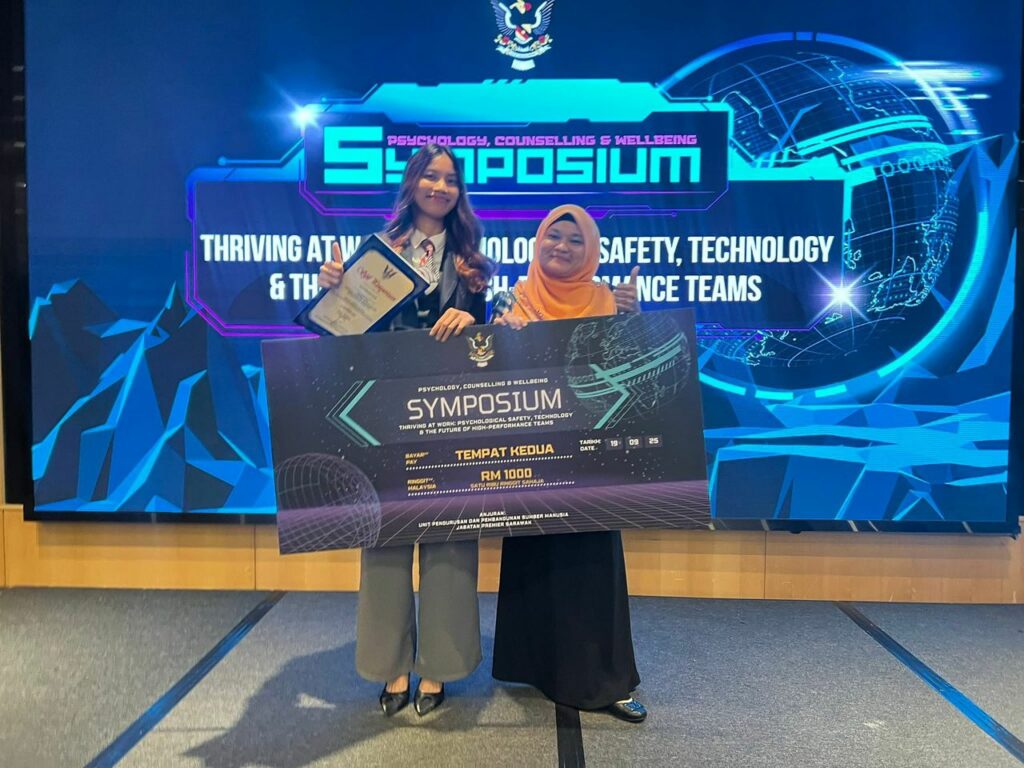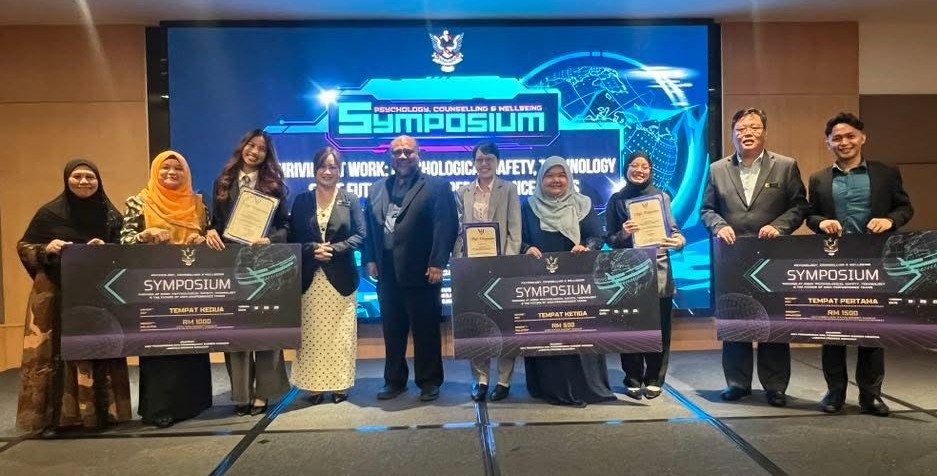Digital innovation in mental health once again took centre stage when Nur Hamizzah Alias presented a paper titled “PS4-S as a Digital Mental Health Innovation: Usability, Acceptance, and AI-Enhanced Support for Students” at the Sarawak Psychology & Counselling Symposium 2025.
Developed and owned by Ross Azura Zahit, PS4-S (Psychoemotional Support for Students) is a digital platform specifically designed to enhance student mental health through accessible, technology-driven support. The research findings demonstrated that PS4-S exhibits high usability and strong acceptance among students, highlighting their confidence in the platform as a safe, effective, and reliable system for psychoemotional support.

The presentation received the 2nd Place Best Paper Award, accompanied by a cash prize of RM1,000, marking another milestone for UNIMAS in advancing research and innovation in mental health. This recognition underscores the research excellence behind PS4-S and reinforces its strong potential as a trusted digital mental health solution for the student community.
Since its inception, PS4-S has garnered numerous national and international recognitions, including the Special Award – Eurobusiness-Haller Poland (presented by YB Datuk Ts. Mustapha Sakmud, Deputy Minister of Higher Education), Gold Award – Malaysia Technology Expo (MTE) 2023, Best of Research Cluster (Social Science & Humanities) – InTEX23, Gold Medal – International Counselling Convention 2022 (ICC2022), and the Best Educator Award 2023 – International Counselling Convention.

The success of PS4-S reflects UNIMAS’s commitment to promoting digital innovation and holistic well-being among students. By integrating psychological expertise with technological accessibility, PS4-S exemplifies how the university continues to lead efforts in digital mental health support—empowering students to seek help, build resilience, and thrive in an increasingly connected world. As PS4-S continues to evolve, it stands poised to inspire future collaborations and breakthroughs that strengthen the bridge between technology and emotional well-being across educational communities.
Contributed by Ross Azura Zahit, Lecturer, Psychology Programme, FCSHD